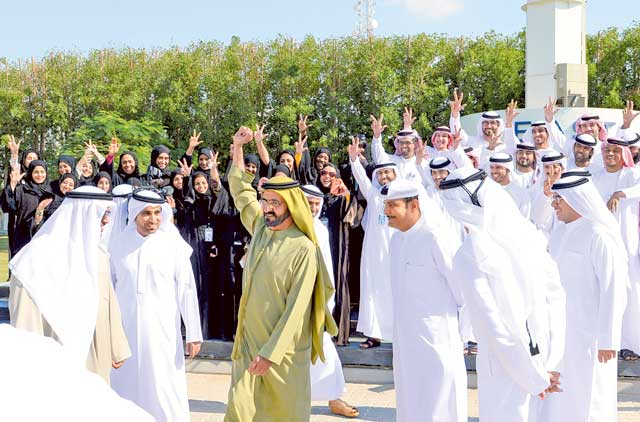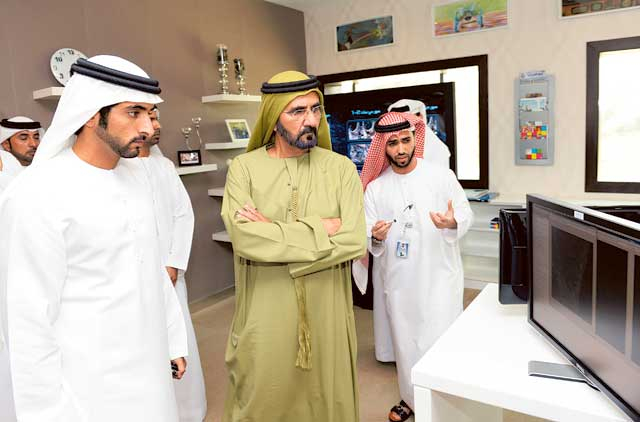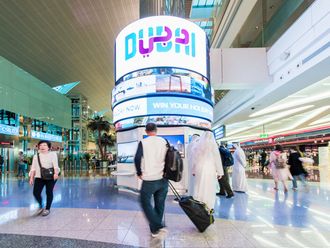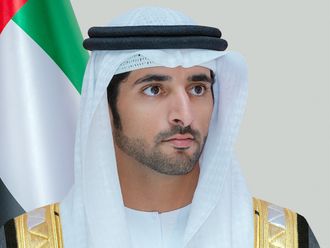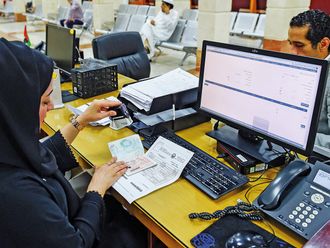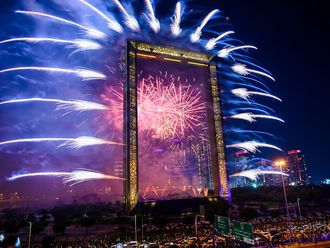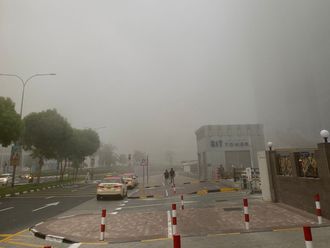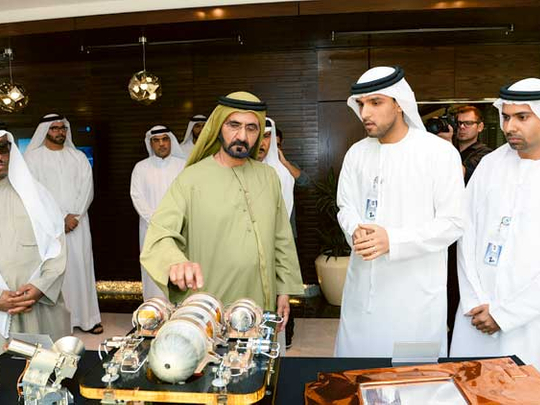
Abu Dhabi: KhalifaSat, the UAE’s first locally-built satellite, is set to be launched in 2017, said His Highness Shaikh Mohammad Bin Rashid Al Maktoum, Vice-President and Prime Minister of the UAE and Ruler of Dubai, as he visited the Emirates Institute for Advanced Science and Technology (Eiast).
“We have launched today, thanks [to] Almighty Allah, executive steps to build the first UAE-made satellite, the first such breakthrough in the Arab world,” Shaikh Mohammad told millions of his twitter followers on Sunday.
Shaikh Mohammad said the KhalifaSat, named after the President His Highness Shaikh Khalifa Bin Zayed Al Nahyan, will be launched into orbit in 2017.
“Our confidence in [the] children of the UAE has no limits, so is our ambitions and success is always granted by Almighty Allah,” Shaikh Mohammad tweeted.
The KhalifaSat will be the third after DubaiSat1 and DubaiSat2, which have been built in Seoul, under a knowledge-sharing arrangement with the South Korean company Satrec.
Twenty Emirati engineers played roles in the building the two satellites, with a view to developing expertise and ensuring the next satellites are built locally.
Dedicating the new scientific breakthrough to the Shaikh Khalifa, Shaikh Mohammad said the success of UAE citizens in space, engineering and energy fields will open huge development horizons and areas to step into for the first time.
“Arabs are creative...brilliant...leaders and our mission is to create the suitable environment. Our history says Arab and Muslim scientists offered the world many achievements and we still believe that the same creative spirit flow in their children,” Shaikh Mohammad said.
Shaikh Mohammad said KhalifaSat’s team will be personally overseen by him and that the Government will set up similar teams in several other areas.
Eiast was established in 2006 to promote advanced research and technological innovation, more specifically satellite technology; to build a well-established internationally competitive base for human skills development; to position the UAE as a hub for space technology development internationally; to optimise the potential of Eiast satellite programmes, DubaiSat-1 and DubaiSat-2, through broadening their applications; and to provide support to decision makers in all sectors through application of its specialist skills.
Shaikh Mohammad inspected the facilities in Dubai to become self-sufficient in constructing and testing satellites, which are planned to be ready by 2015.
A national team including forty-five Emirati engineers are working on building the KhalifaSat, which, according to Shaikh Mohammad, catapults the Arab region into a new era of space industry and competition in space technologies.
While launching the promising project, Shaikh Mohammed said “KhalifaSat is a message to all Arabs that Arab ushering into the space era is neither out of reach nor impossible and our State will be a leader in this industry as long as we have the confidence and courage to enter into competition with major countries in this field.
“Our doors will remain open for cooperation with all Arab countries in space technology and engineering,” Shaikh Mohammed added.
In order for Eiast to achieve its goal of using space technologies and applications effectively, the institution has pursued four programmes: research and development of outer space, satellite manufacturing and system development, Earth observation from satellite images, and ground station services and support to other satellites.


